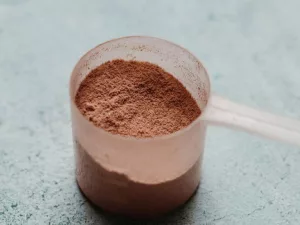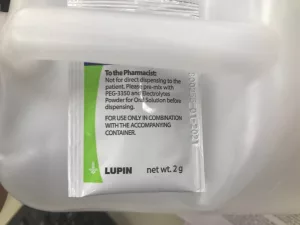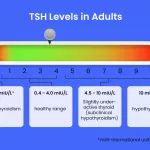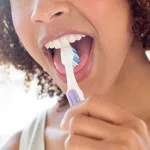Many people reach for zinc lozenges and supplements at the first sign of illness, and with good cause. Zinc ranks among the most plentiful trace minerals in the body and is essential for nearly every facet of health.
Zinc is required for the proper activity of more than .
Research indicates this mineral may bolster immune defenses, help stabilize blood sugar, and support the health of skin, eyes, and the heart. There are numerous reasons to make sure you meet your daily zinc needs.
This article covers the various forms of zinc supplements, their potential benefits, dosing guidance, and possible risks and adverse effects.

Possible uses and benefits of zinc
Zinc is crucial for many physiological processes and has been linked to a wide range of benefits.
Treats zinc deficiency
People commonly use zinc supplements to prevent and treat zinc deficiency.
Although zinc deficiency is relatively rare, zinc is an essential nutrient, so the body can’t synthesize it.
Individuals with restrictive diets, impaired absorption of nutrients, or certain medical conditions may be at greater risk of zinc deficiency.
Signs of a zinc deficiency include:
- reduced immune function
- hair thinning or loss
- loss of appetite
- diarrhea
- delayed wound healing
have shown that supplementing with zinc reliably raises blood zinc concentrations.
According to a , most zinc deficiencies respond well to supplements and dietary changes, often resulting in quick symptom improvement.
For instance, diarrhea symptoms may begin to resolve within 24 hours, while skin lesions generally improve within one to two weeks after starting supplements.
If your dietary intake already provides sufficient zinc, extra supplementation may not be necessary. If you suspect deficiency, a physician can check blood levels to determine whether supplementation could help.
May enhance immune function
Zinc is commonly included in over-the-counter remedies and natural products because of its immune-supporting and anti-inflammatory properties, so it might help manage certain infections when used early in the course of illness.
A found that zinc lozenges providing 80 to 92 mg of zinc could shorten the common cold’s duration by up to 33%.
Zinc may also function as an antioxidant, lowering inflammation and potentially protecting against chronic illnesses such as heart disease, cancer, and diabetes.
According to a , some studies indicate that zinc supplementation might both prevent symptoms and reduce the length of certain respiratory infections.
May support blood sugar control
Zinc is known for its role in blood sugar regulation and . Insulin is the hormone that moves glucose from the bloodstream into tissues.
Some studies suggest zinc may help maintain stable blood glucose and improve insulin sensitivity.
One reported that low zinc status might be associated with impaired glucose regulation and type 2 diabetes.
Other indicate zinc can reduce insulin resistance, which could allow the body to use insulin more effectively to maintain normal blood sugar.
Helps combat acne
Zinc supplements are frequently used to support skin health and address common dermatologic conditions like acne.
Particularly, zinc sulfate has been shown to be effective in reducing acne symptoms.
According to a , people with acne often have lower zinc blood levels than those without acne, and zinc supplementation reduced the number of inflammatory lesions on average.
Zinc is often preferred over some other treatments because it’s inexpensive, effective, and tends to produce fewer adverse effects.
May support heart health
Cardiovascular disease is a major health concern, responsible for about of deaths worldwide.
Some studies show zinc supplementation may improve several risk markers for heart disease, including lowering triglyceride and cholesterol levels.
A found that zinc lowered total cholesterol, LDL (bad) cholesterol, and blood triglycerides, potentially reducing heart disease risk.
Another indicated zinc supplementation might lower systolic blood pressure, which is the top figure in a blood pressure reading.
However, evidence on zinc’s effects on blood pressure is limited. Additionally, suggest low serum zinc might correlate with greater coronary heart disease risk, but results are not definitive. More investigation is necessary.
May slow macular degeneration
Age-related macular degeneration (AMD) is a prevalent eye disorder and a leading cause of vision loss globally.
Zinc supplements are often recommended to slow AMD progression and help protect against vision loss and blindness.
A involving 72 participants with AMD showed that 50 mg of zinc sulfate daily for 3 months slowed disease progression.
Other also suggest zinc may help preserve retinal nutrient flow and protect against AMD.
However, some indicate zinc alone might not markedly improve vision and that combining it with other therapies may yield better outcomes.
Thus, further research is warranted to clarify the relationship between zinc and eye health.
Forms of zinc supplements
When selecting a zinc supplement, you’ll notice several different forms available.
Each form of zinc can affect absorption and tolerability in different ways.
Common types you may encounter include:
- Zinc gluconate. One of the most common OTC forms, often used in cold lozenges and nasal sprays.
- Zinc acetate. Like gluconate, zinc acetate is commonly incorporated into lozenges to ease cold symptoms and speed recovery.
- Zinc sulfate. Besides preventing deficiency, zinc sulfate has been shown to reduce acne severity.
- Zinc picolinate. An older suggests this form may be absorbed more effectively than zinc gluconate or zinc citrate.
- Zinc orotate. Bound to orotic acid, this is a frequently sold form of zinc supplement.
- Zinc citrate. A found this form is absorbed as well as zinc gluconate but has a milder, less bitter taste.
Zinc gluconate is widely available and affordable, making it a practical option for increasing intake. If absorption is a priority and cost is less of an issue, zinc picolinate may offer better uptake.
Zinc supplements are sold as capsules, tablets, and lozenges, so you have various ways to meet your daily zinc needs.
Note that zinc-containing nasal sprays have been linked to and are best avoided.
Recommended daily zinc intake
The ideal zinc dose depends on your diet and the supplement form you choose. Different zinc supplements contain varying amounts of elemental zinc.
For instance, zinc sulfate contains 23% elemental zinc, so 220 mg of zinc sulfate provides approximately 50 mg of elemental zinc.
The elemental zinc amount is typically listed on supplement labels, which helps you determine how much to take to meet recommended intakes.
For adults, the recommended dietary allowance (RDA) is , varying by sex and whether you’re breastfeeding.
You can also obtain this amount through a balanced diet including zinc-rich foods such as meat, poultry, seafood, fortified cereals, nuts, seeds, legumes, and dairy.
For example, a 3-ounce (85-gram) beef patty provides about 5.3 mg of zinc, while some fortified cereals offer roughly 2.8 mg per serving.
Higher supplemental zinc doses are sometimes used to treat acne, diarrhea, or respiratory infections.
However, because excessive zinc intake can cause harm, it’s not recommended to exceed the upper limit of — unless supervised by a healthcare professional.
Possible adverse effects of zinc
When taken as directed, zinc supplements can be a safe, effective means of increasing zinc intake and improving various aspects of health. Still, there are potential side effects to be aware of.
Side effects of oral zinc supplements
Zinc generally is well tolerated, but some people experience nausea, vomiting, diarrhea, or abdominal discomfort.
Ingesting more than 40 mg per day of elemental zinc can cause flu-like symptoms such as fever, coughing, headache, and fatigue.
Zinc can also impair your body’s ability to absorb , potentially leading to deficiency in that mineral over time.
Moreover, zinc supplements can interact with certain antibiotics, decreasing their effectiveness if taken simultaneously.
To minimize side effects, adhere to recommended dosages and avoid exceeding the tolerable upper intake level of 40 mg per day unless under medical advice.
If you notice adverse effects after taking zinc, reduce your dose and consult a healthcare provider if symptoms continue.
Summary
Zinc is an essential mineral involved in numerous aspects of health.
Supplementing with roughly 8 to 12 mg of elemental zinc daily may support immune function, blood sugar regulation, and the health of the eyes, heart, and skin.
However, do not exceed 40 mg of zinc per day, as high intakes can cause digestive upset and flu-like symptoms, interfere with copper absorption, and reduce the effectiveness of certain antibiotics.

























Leave a Reply
You must be logged in to post a comment.